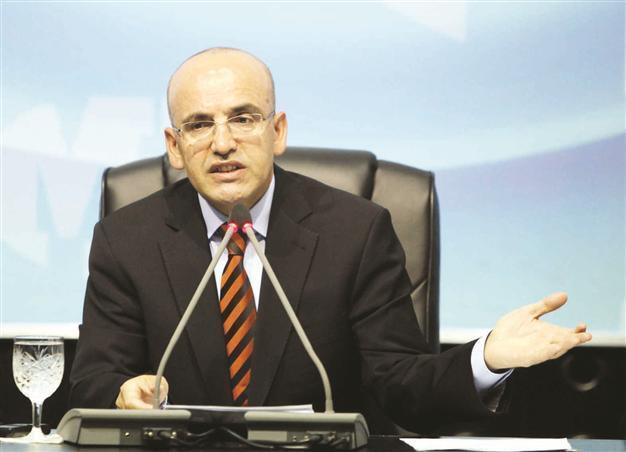Turkish government plans to bridge budget with new taxes
ANKARA - Anatolia News Agency

Turkey’s budget balance deteriorated in the first six months of the year, Finance Minister Mehmet Şimşek says. The imbalance in June was larger, he also notes. AA photo
Additional taxes may be imposed if necessary, said Turkish Finance Minister Mehmet Şimşek yesterday, indicating that the budget balance had deteriorated “seriously” during the first half of the year.“We will start working on the budget for the year 2013. We will study in the meantime to see whether additional measures are needed. I cannot tell yet. But additional measures may be taken if necessary,” he said, answering a questions by a journalist asking about the possibility of an additional tax due to the results of the first six-month budget realizations.
Back from budget surplus
Turkey registered a budget deficit of 6.7 billion Turkish Liras in the first six months of the year, 6.3 billion liras of which was recorded only in June, he said during a press conference on budget realizations for the first half of the year. That was a significant drawback considering there had been a 2.9 billion-lira budget surplus in the same period last year.
Budget revenue rose 11 percent in the first half of 2012 year-on-year to 162.2 billion liras, and tax revenue was up 6.9 percent, reaching 131.2 billion liras. However, the figures show a considerable slowdown in revenue as the figures were 20.7 percent and 24.4 percent respectively in the same period last year.
The primary surplus was 19.6 billion liras in the first half of the year, down from 25.3 billion liras compared with the same period last year. However, the coverage ratio of tax revenue to expenditure excluding interest payments sat at 92 percent in the first six months despite slowing tax revenues due to weak domestic consumption.
Replying to another question on privatizations, Şimşek said firms such as Çaykur and Botaş were not on the privatization agenda yet, but it was matter that the privatization high council would decide. Head the board told Anatolia news agency that four companies, namely Botaş, Turkey’s oil gas and pipeline firm; Çaykur, the tea producer; TİGEM, the agriculture organization; and the PTT, a postal services firm, might be set to be part of privatization processes.
















